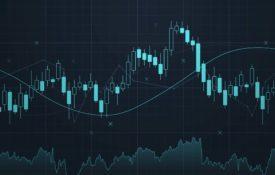-

Better Behavior With Virtual Reality
Mel Stater, a researcher with the University of Barcelona and author on a paper published in the journal Current Directions in Psychological Science, explains how we might foster prosocial behavior with virtual reality.
-

Mental Health in a Global Pandemic: Lessons Learned From Psychological Science
Nearly 2 years into the COVID-19 pandemic, an emerging body of literature is revealing the pandemic’s mental health impact on children, adolescents, and adults, including those who had previously been diagnosed with a mental illness.
-
Position Statement on Academic Freedom
The Association for Psychological Science (APS) affirms the value of academic freedom, which is the freedom of academic psychological scientists—and those from other disciplines—to produce and disseminate knowledge through research, teaching, practice, and service without undue constraint. Academic freedom is essential to advance the common good and the search for truth. APS Members must comply with all relevant codes of ethical behavior in psychological science with respect to the pursuit of academic freedom. Adapted from the April 2013 statement of the Association of American Universities and the mission of the American Association of University Professors.
-

Visualize Data to Communicate Science With Students, the Public, and Policymakers
The latest issue of Psychological Science in the Public Interest explores the good and the bad of data visualizations and how public understanding of science can improve if researchers adopt better visualization techniques.
-
As We Live Longer, How Should Life Change? There Is a Blueprint.
The majority of children born in the developed world now have a good chance of making it to their 100th birthday. They are also on track to live, learn, work and retire in systems and institutions that were set up when their grandparents were children.
-
Do Callous Personalities Win In Business? New Research Suggests Not
A new article published in the academic journal Personality and Individuals Differences casts doubt on a widely held assumption in the professional world — that cold and unsympathetic individuals are more likely to rise to the top of the corporate ladder. If anything, the data suggests the opposite. “There is this public opinion or belief that psychopathy is related with higher success — that individuals high on psychopathic traits would be successful CEOs or politicians,” says Hedwig Eisenbarth, a psychologist at Victoria University of Wellington in New Zealand and lead author the research.

